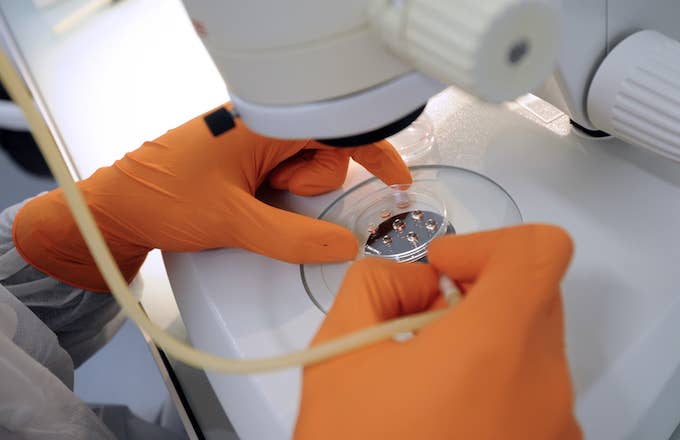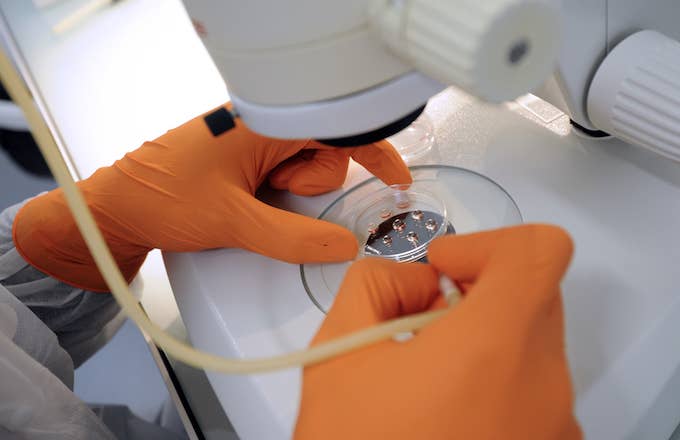
Welcome to the future. Self-driving cars are closer to becoming a normal thing than ever before, robots are changing the way we have sex, and now human eggs are able to be grown in a laboratory.
According to the Guardian, researchers at the University of Edinburgh discovered that it is possible to grow human eggs outside of the human body in a lab. This discovery is considered a big breakthrough for the future of fertility preservation. For some women, saving eggs is achievable by freezing them. But for young women and pre-pubescent teens who experience premature fertility loss due to things like cancer, this could provide a safer opportunity to have children compared to previously used methods.
The breakthrough could not only provide women with new method of fertility preservation, but help us further understand the process of human egg development. In the study, researchers took the ovarian tissue of 10 women in their twenties and thirties. Using several different cocktails of nutrients, nine of 48 eggs grown from that tissue reached their full maturity. The final stage of maturity is necessary for fertilization, and before now has never been reached in a lab.
This procedure could not only benefit young women who experience premature fertility loss, but mature women who seek to do in vitro fertilization. Instead of taking a limited number of eggs from a patient that could possibly fail to result in a pregnancy, the ovarian tissue could possibly yield hundreds to thousands of viable eggs with this new method.
Still, the process of growing eggs in a lab will take years of study before being deemed safe enough to use in fertility clinics. Researchers must prove that the eggs can not only mature, but do so without any abnormalities that could pose a risk to women.

